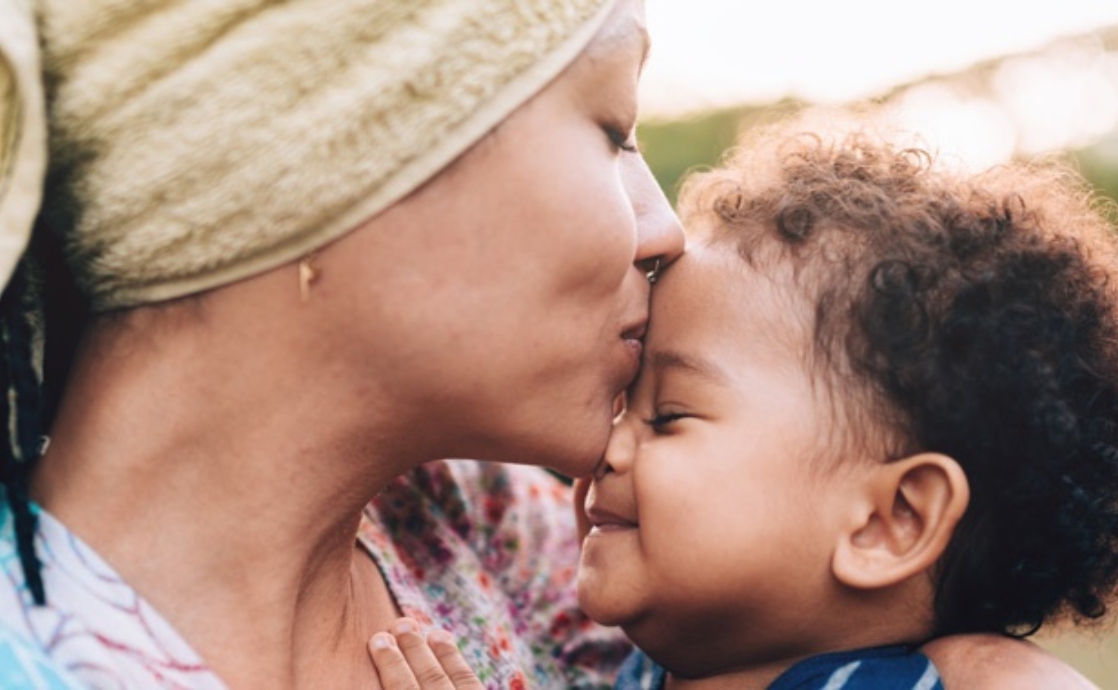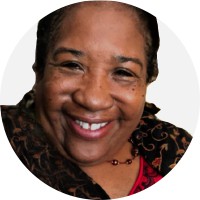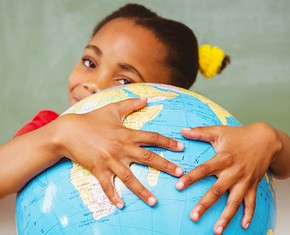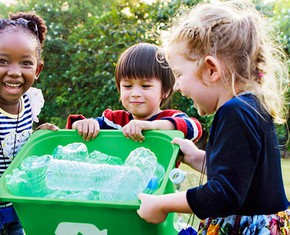The views expressed in our content reflect individual perspectives and do not represent the authoritative views of the Baha'i Faith.
Modern society puts an inordinate amount of pressure on mothers, expecting them to ensure that their children are “successful” — that they have every advantage, that they have money, status, and influence. If the child makes a misstep, the reflection is on the mother: “What did she do wrong?”
I became a Baha’i as a young adult, and I endeavor by trial and error to be noble, kind, and thoughtful to others — to have good manners and to be friendly, optimistic, and confident in God’s grace for all of humanity. Now, with two grown children, how can I tell if I was successful as a mother? Where is the data?
What I have learned as a Baha’i mother — and in being my own mother’s child — is that there is a significant, critically important difference between material and spiritual child-rearing.
RELATED: Learning Motherhood as a Science
I’m the oldest of six children, and my mother gave each of us her wisdom, her courtesy, her discernment, and judgment, whether we wanted it or not. I am also particularly grateful for my mother’s precious gift of faith in God. She passed away in 2014, and as another Mother’s Day without her physical presence approaches, I’m reflecting and remembering how her guidance and influence, her no-nonsense approach to the ups and downs of life, her patience, her careful management of the family’s finances, her reliance on prayer, and her service to God shaped my experience as a mother.
My relationship with my mother was one built on a strong foundation. My grandparents raised my mother, her brother, and sister in the Jim Crow South during the Depression. Because of what they experienced in the South, my mother (and father) tried to spare us some of the economic and educational deprivation and systemic racism they experienced as children. My mother instilled both confidence that we were loved and faith in God into us.
She was very religious yet very accepting of diverse beliefs. Indeed, what I learned about faith from my mother is reflected in the Baha’i Writings about mothers. Abdu’l-Baha, the son of Baha’u’llah, the prophet and founder of the Baha’i Faith wrote, “For mothers are the first educators, the first mentors; and truly it is the mothers who determine the happiness, the future greatness, the courteous ways and learning and judgement, the understanding and the faith of their little ones.”
In particular, my mother demonstrated the Baha’i principle of the independent investigation of the truth. Without this principle, wrote Abdu’l-Baha, “blind imitation of the past will stunt the mind. But once every soul inquireth into truth, society will be freed from the darkness of continually repeating the past.”
My mother did not make her love and care for us conditional on our acceptance of God or on being members of her church. She did not force us to accept her religious faith simply because she believed in God, and we were her children. We have family members who are Christian, Muslim, and agnostic. My mother loved to attend Baha’i gatherings with me, and she remained a faithful member of her church until she passed away. Each of her children followed a different spiritual path.
Universal education is a principle of the Baha’i Faith, and Baha’is believe the education of women is essential for humanity’s progress. If a family has a girl and a boy, yet can only afford to educate one child, the girl should be educated first as she is potentially a mother of children. In a talk in Paris, Abdu’l-Baha said that “if the mother is educated then her children will be well taught. When the mother is wise, then will the children be led into the path of wisdom.”
My mother was educated, and she encouraged each of her children to be educated — she taught me to read before kindergarten. Yet the education she demonstrated to us was not just the acquisition of degrees and titles. She encouraged us to analyze, to be skeptical, to question, and to come to our own conclusions. She taught me to think, rather than feel, my way through life.
My mother’s example of listening, asking questions, reading, and reflecting on truth also helped me raise and educate my children likewise to read, to ask questions, and think critically. When my children were born, I lived in London, and my mother lived in California, But I consulted with her often — long, expensive, in-depth discussions over the telephone. We discussed God, life, the foibles of human nature, her dreams and ideas, and reflections on the state of the world. In the early years of raising my two sons, I also sought her advice from the mundane (how to make baby food) to the esoteric (should we send the boys to private school?), and we shared our faith in God. When we moved back to California, these long discussions continued. My father would hover near my mother, wondering what in the world did she and I have to talk about?
She was my child-rearing coach, my job counselor, my cooking consultant, my reminder that I was a child of God and that through faith, anything was possible, especially when it seemed like it was not. Because of her example and support, I can show my children love through active listening, by being not being judgmental and hypercritical, and by encouraging them to manifest the virtues and the capacity they were each born with. I’m following my mother’s example by accepting my children as they are, not as I wish then to be. And, as most mothers know, staying in a “constant state of prayer” helps — both for my children and their families.
No, it is not easy to be a mother in a society that has so many expectations of women and makes so many demands on individual mothers. If a child makes a mistake or does not turn out “perfectly,” society looks askance, and the blame immediately falls on the mother. But what about the responsibilities of the father? The Baha’i Writings make it clear that the equality of women and men is critical for the development of children. Abdu’l-Baha said that “Divine Justice demands that the rights of both sexes should be equally respected since neither is superior to the other in the eyes of Heaven. Dignity before God depends not on sex but on purity and luminosity of heart. Human virtues belong equally to all.”
As a Baha’i mother of adult children, my goal now is to support other mothers by sharing the spiritual lessons of kindness, generosity, and justice I learned from my mother, and by being a spiritual educator of children. Baha’u’llah wrote, “Let deeds, not words, be your adorning,” and mothers demonstrate their love for their children through both material and spiritual actions.
RELATED: Thou Art Wonderful, Mother
I’ve morphed into being an elder without her physical mother, and my role of mother to my two adult sons has transformed from manager to advisor to consultant. Thankfully, my sons are financially and physically independent from me (and their father). Sometimes I wonder if my identity as a mother is now historical, theoretical, or irrelevant because my children are “grown” and do not “need” me. However, one of the most powerful and wise things my mother said to me before she died was, “If I thought you would fall apart emotionally after I am gone, I would have failed as a mother.”
To me, both then and now, this statement reflects my mother’s confidence that she had done the best job she could to train my siblings and me to be functional adults without her physical presence. As Abdu’l-Baha said in a talk in Paris just over a century ago, “the future generation depends on the mothers of today.”
What I have learned, and am still learning — as a mother, as a co-parent, and now as a grandparent and a mother-in-law — is to continue to practice and refine the spiritual qualities my mother demonstrated during her life. By doing this, my life contributes to the peace and security of future generations.
















Comments
Sign in or create an account
Continue with Googleor